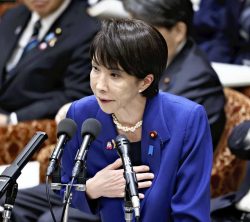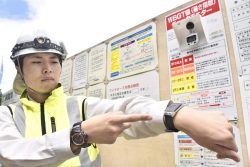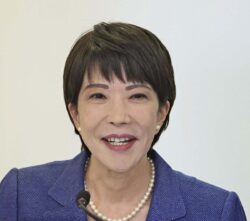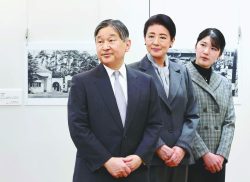Coming of Joint Custody Inspires Relief, Concern in Japan; Questions Raised Over Medical Decisions, Other Details

The House of Councillors Judicial Affairs Committee votes to approve proposed revisions to the Civil Code and other laws to allow the introduction of a joint custody system at the Diet on Thursday afternoon.
20:00 JST, May 17, 2024
A system under which divorced parents can choose to share custody of their child or children is set to become a reality in Japan after the passage on Friday of relevant legislation by the House of Councillors. It will be a major change from the current system under which only one parent is given parental authority after a divorce.
The new system sets up a framework for both parents to take responsibility for and cooperate in the upbringing of their child even after splitting up. Despite this, how both parents would be involved in raising a child remains undefined in some specific situations, so many wrinkles in the system need to be ironed out before it comes into effect.
National demographic statistics show that 179,099 married couples got divorced in 2022. Of these, 94,565 had minor children. A total of 161,902 children experienced their parents breaking up in that year.
Under the current system, determining whether the mother or the father will be given parental authority after a divorce has been a major issue. Parental authority is the right and responsibility of a parent to look after a minor child and encompasses matters such as their education and managing a child’s assets. Currently, the Civil Code states that both parents have this authority while they are married, but that only one parent has this authority after a divorce.
The mother is given parental authority in almost 90% of cases. Under this sole custody system, the parent without parental authority is often unable to meet their child and finds it difficult to get involved in their upbringing. Some observers have pointed out that this also can lead to situations in which the noncustodial parent does not pay child support.
Joint custody is common practice overseas, especially in places such as Europe and the United States. “It’s crazy that the option of joint custody doesn’t exist here, even if both parents want such an arrangement,” one observer said.
The revisions to the Civil Code and other laws will allow parents getting a divorce to discuss and choose whether to opt for sole or joint custody. If they are unable to reach an agreement, a family court will decide whether to grant joint or sole custody. The revisions state that a family court must award sole custody if there are concerns that the “interests of the child will be harmed” due to reasons such as domestic violence or abuse perpetrated by one of the parents.
These changes are very significant, according to Satoko Shibahashi, 50, head of Rimusubi, a Tokyo-based general incorporated association that supports divorced mothers and fathers raising children. “The social preconceived notion that there’s a single parent after a divorce is being swept away. This could be an opportunity for society to more widely recognize that both parents should raise a child even if they split up,” Shibahashi said.
Nerves jangling in medical circles
If joint custody is granted after a divorce, both parents will, in principle, discuss and decide matters pertaining to the child, such as choosing which school to attend. Even so, given that the mother and father will basically be living apart, the revisions allow one parent to make decisions for “normal activities in daily life” or if there are “pressing circumstances.”
During Diet deliberations, the Justice Ministry explained that “normal activities in daily life” would apply to matters involved in caring for the child, such as providing meals, choice of extracurricular activities, vaccinations and minor medical treatment, and the child working part-time after starting high school. “Pressing circumstances” would apply to situations such as urgent surgery, fleeing from domestic violence or abuse, and completing school admission procedures after entrance exam results have been announced.
However, these cases are only examples. A family court will be entrusted to make a decision in the event that the parents’ opinions are divided on matters that they should decide by agreement. “This could make a child’s progression to a higher-level school or university hard to finalize,” one analyst suggested.
The government plans to clarify what qualifies as “pressing circumstances” and other details before the new system comes into effect. Apprehension over the current situation is particularly strong in the medical world. When a child is a patient at a medical care facility, the consent of the parent with parental authority is obtained when the child is admitted or requires an operation. However, it remains unclear what conditions must be met and what level of urgency would be considered “pressing” enough that the consent of one parent would be sufficient. In joint custody cases, the medical facility would face the extra burden of contacting the parent who lives elsewhere and obtaining their consent.
“There also is the risk that if a medical facility conducts an urgent medical procedure with the consent of one parent, the medical staff could be sued by the other parent who didn’t give their consent,” said Japan Society of Obstetrics and Gynecology Chairperson Kiyoko Kato, who also is a professor at Kyushu University.
The society she chairs is considering formulating guidelines covering issues including the scope of what medical procedures would be categorized as “regular” and what would be “pressing.”
“We’ll compile these guidelines by working closely with pediatricians and lawyers to ensure that any medical treatment required to save the life of a child can be performed with peace of mind,” Kato said.
"Politics" POPULAR ARTICLE
-

Japan to Support Central Asian Logistics Route That Bypasses Russia, Plan to Be Part of Upcoming Summit in Tokyo
-

Japan to Tighten Screening of Foreigners’ Residential Status by Providing Information of Nonpayment of Taxes
-

Chinese, Russian Bombers Flew Unusual Path by Heading Toward Tokyo; Move Likely Meant to Intimidate Japan
-
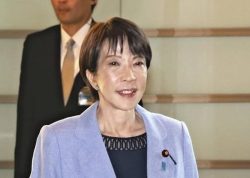
Japan Plans National Database to Track Foreign Ownership of Real Estate, Land as It Weighs New Rules
-

Up to 199,000 Deaths Estimated From Mega-Tsunami; Most Recent Occurrence Took Place in 17th Century
JN ACCESS RANKING
-

Tokyo Economic Security Forum to Hold Inaugural Meeting Amid Tense Global Environment
-

Keidanren Chairman Yoshinobu Tsutsui Visits Kashiwazaki-Kariwa Nuclear Power Plant; Inspects New Emergency Safety System
-

Imports of Rare Earths from China Facing Delays, May Be Caused by Deterioration of Japan-China Relations
-

University of Tokyo Professor Discusses Japanese Economic Security in Interview Ahead of Forum
-

Japan Pulls out of Vietnam Nuclear Project, Complicating Hanoi’s Power Plans


